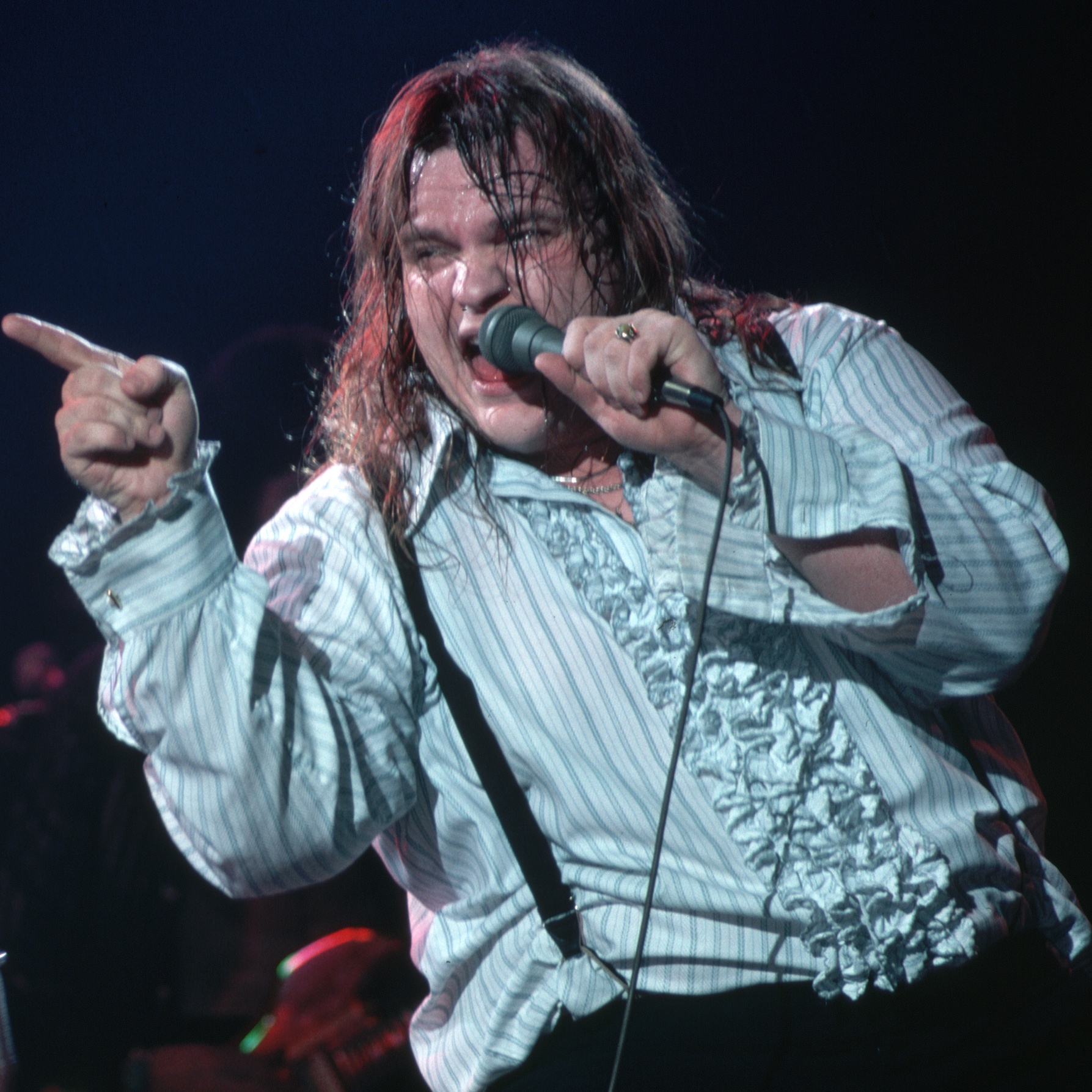The famed singer died of complications due to Covid-19 on Thursday, January 20, according to his family.
Born Marvin Aday, which he legally changed to Michael in 1984, “Meat Loaf’s” plans to record and release new music may now remain unfulfilled. But local fans of the hard rocker are not wallowing at the tunes he did not get to share; rather, they are marveling at the memory of those he did.
“When I heard he died, I just realized – I never knew Meat Loaf’s name,” said one Islip native, 56, while fondly recalling the showman’s frequent appearances on the mix at her 1987 wedding. “Weird thing is, I never even thought about it.”
The curiously not inducted into the Rock and Roll Hall of Fame stage-eccentric first earned said nickname-turned-identity from a pee-wee football coach. Christened ‘Meat’ due to his huskier build, he soon added the ‘Loaf,’ then temporarily attached a short-lived ‘Soul’ for naming purposes of his Huntington Beach, California-based first band in the late 1960s. Around this same time, the twentysomething two-way talent joined the cast of Hair’s Los Angeles production.
Whether in his pursuit of musical theater or his slow-gestating solo career, Meat Loaf found himself spending the bulk of the 1970s working twice as hard – compelled to be taken seriously as a musical act, and as a man in general, due to his size and the related mythos that had begun to formulate. Even as a practicing vegan later on from 1981- 1992, he found himself alienated by the few contemporary celebrities he was keen on meeting due to preconceived notions pertaining to his namesake.
Rallied back into theater in 1974 after a brief sabbatical, Meat Loaf served as an immediately deployed understudy replacement for none other than a pre-Saturday Night Live John Belushi, his close personal friend, in a Broadway performance of National Lampoon’s “Lemmings.” It was at this show, the Rocky Horror actor-performer would meet Ellen Foley, most known for her iconic co-lead vocals on what would amount to the highpoint of Meat Loaf’s artistic legacy.
“Paradise by the Dashboard Light,” without a shadow of a doubt, is the runaway hit from Meat Loaf’s surprisingly short, but thereby ultra-replayable 1977 rock anthem, “Bat Out of Hell.” Freddie Mercury and Queen repopularized the template when they put out an unconventionally structured, daringly long record of their own with “Bohemian Rhapsody” a few years earlier. With “Paradise,” Meat Loaf lent further fuel to the “flipping music on its head” fire by unleashing a three-headed dragon. It’s essentially a storybook: two stages of young love in a car, and a simultaneous longing for the past and prayer for the end of time many years after going all the way that night, that night. Unadulterated. Unrelenting. Meat Loaf, through and through.
The boldest creative maneuver at play on the track is, of course, the involvement of New York Yankee legend and Hall of Fame broadcaster, Phil “Scooter” Rizzutto. Contrary to popular belief, the “Holy Cow” kid actually recorded his inside-the-park homer, contextually “base-checking” play-by-play instudio; it was not a compendium of calls pulled from real broadcasts. Rizzutto claimed he was unaware of the sexual resonance of what he was tabbed to record, but Meat Loaf balked at such statements, citing this was purely Rizzutto’s means to steer clear of drawing criticism.
This mild disagreement aside, Meat Loaf maintained a strong relationship with his beloved New York Yankees and the MLB in general, singing the National Anthem at the All-Star Game in 1994. His connection to sports persisted beyond the national scale at the time, as he juxtaposed his long-teased “Bat Out of Hell II: Back to Hell” (1993) – which earned him a Best Solo Rock Vocal Performance Grammy Award for “I’d Do Anything for Love (But I Won’t Do That)” – with a few-years stint as a freshman girl’s softball coach at a Connecticut High School.
While many wielding his gravitas could find their large personalities translate offstage, a social anxiety-perplexed Meat Loaf regularly took comfort in rejecting celebrity to instead retreat into some semblance of civilian life; a side of him many never realized he maintained between major public appearances.
That said, Meat Loaf was not afraid to step into the spotlight, even one not operating within his exact wheelhouse, when the right collaborators and opportunities came calling. As a self help-seeking sap in David Fincher’s 1999 cult classic Fight Club, Meat Loaf chased ferocious funniness with forever friendship, co-star Edward Norton remembered.
“I don’t keep pictures from films around home. But I have this one in my office in a frame because it makes me smile every time. It’s engraved ‘Love and Hugs, Meat’ it sums him up well. He was so funny. And gentle. And warm to everyone. A sweet soul,” he tweeted, referring to a photo of the three-time Academy Award nominee offering Meat Loaf a hug of surrender while in character.
Meat Loaf’s fellow karaoke generation mainstay and power ballad-projecting peer Bonnie Tyler shared similar sentiments on the site. “I am shocked and saddened by the sudden death of Meat Loaf,” Tyler said. “He was, as you might imagine, a larger than life character with a voice and stage presence to match and is one of those rare people who truly was a one off talent and personality. Rest In Peace.”
His name was Marvin Aday. Then, it was Michael Aday. In a film that’s namesake you should not talk about, his name was Robert Paulson. But as the Islip native profoundly added, “it didn’t really matter; because at the end of the day, he was and always will be the one, and truly only, Meat Loaf.”
We were doubly blessed.







